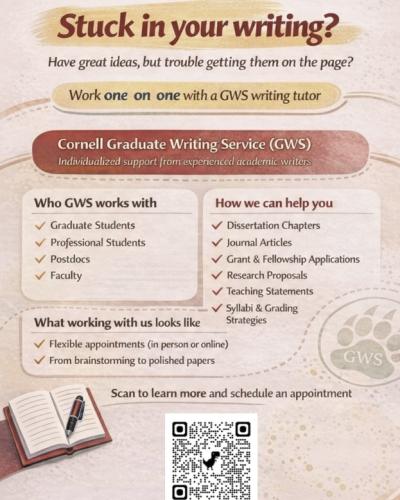Developing course attendance policies for writing courses can be challenging, and especially so during a pandemic! Here are some examples from some of this semester's First-Year Writing Seminars.
Sample FWS Attendance Policy 1
Class attendance is an essential piece of everyone’s growth as writers. In this course, we will do many in-class writing exercises designed to help us practice the writing skills that are crucial for the major and minor assignments. All our core essays will also build upon group discussions of the readings as well. Although participation is a key portion of all these exercises, class attendance is the vital first step. Therefore, missing too many classes will influence your overall class performance in many ways.
However, I also understand that there are circumstances beyond our control, and we may occasionally need to miss classes and catch up on our own time. There are also pandemic restrictions and guidelines to consider, and it is equally essential that you take care of your own and others’ health. Therefore, I am instating the following policy for attendance this semester:
- You may be absent twice without explaining the reason to me; you only need to communicate with me about how to make up the work.
- I will approve two additional absences if you communicate with me why you will be absent along with how you will make up the work.
- You are excused for religious holidays, Covid-related quarantine or isolation, or occasional sporting events and school events, as per university regulations and guidelines; please communicate with me ahead of time if you know you are going to be absent! Depending on what is happening in class, I may offer Zoom access.
- If you need an extended absence for illness or other reasons, please communicate with me about how to handle it and keep up with the course.
Absences beyond those detailed above will begin to affect your grade as specified in the course grading policy. In all the above cases, you will be responsible for making up any missed work. If you do not, this will also affect your grade as specified in the course grading policy.
Missing up to six classes (the equivalent of three weeks) without communicating with me will result in lower grades, down to and including an F.
Sample FWS Attendance Policy 2
Attendance: Being present in class is essential to your own growth as a writer as well as your peers’ learning and growth; that is, this is a studio style class in which you will learn through discussion, in-class writing activities, reading and talking about others’ writing, and through developing how you talk about how writing works. Throughout the semester, I will track excused and unexcused absences. An excused absence is any legitimate reason for which you have to miss class that is communicated to me in a timely manner (sickness, emergencies, mental health, etc.). In fact, if you are sick, please stay home to protect your classmates and care for yourself. Unexcused absences will affect your grade. For every two unexcused absences (a week of class), you will lose 3 points (a +/-) on your final grade. Regardless of whether an absence is excused or unexcused, you will be responsible for making up any missed work. It is possible to negotiate extra work to eliminate unexcused absences, but such negotiations are made on a case-by-case basis and require a conference. If you miss an extensive amount of class (over two weeks or four classes), even if for reasonable and excused reasons, you will be expected to meet with me to negotiate how you can make up the missed work and participation in class; even though extended absences may be for legitimate reasons, given the collaborative nature of the class, it is likely to negatively affect your grade.
Sample FWS Attendance Policy 3
Attendance and Participation
- Developing your writing skills depends on our in-class collaborations; therefore, attendance is a serious requirement of the course. Of course, participation begins with being in class, but it also means being alert and engaged. Come rested and prepared to share. For each class, be ready to read, write, speak, and actively listen. For most classes you will need to have read and written something in preparation for class interactions. So, keep in mind how crucial regular class assignments are to everyone’s learning and your participation grade.
- Each unexcused absence will affect your participation grade, and more than four will result in failure of this seminar. Also note that an absence will be assessed for every two times you arrive at class more than ten minutes late or for every three times you arrive more than five minutes late. In short, be on time!
Sample FWS Attendance Policy 4
- You are allowed three absences (excused or unexcused): any more will result in a “fail” for the course. You should never come to class if you have flu-like symptoms. I am flexible with assignment deadlines—but I am strict about attendance because the rules demand it.
- Absences affect your grade!
Week-long units consist of two classes: if you miss the first class on Modern art, you missed the principles of interpreting modern art—which we practiced in class. You cannot “fix” this by Googling the subject, asking classmates for notes or asking me what you missed. Never ask the teacher “what did I miss in class?”: what you missed is practicing interpretation. The papers that we write are built on classwork: if you miss a key class—it will be difficult to reach a deep level of interpretation and write a decent paper. For this reason, you must attend every class if possible. Remember that this is not high school: you will not miss classes and somehow write good papers. Close-reading is the crux of a university paper—and you will learn how to close-read texts in the classroom: in your own style, with your own ideas—developed in seminar discussion.
From Courses of Study | https://courses.cornell.edu/content.php?catoid=31&navoid=7888
Class Attendance
It is each student’s responsibility to attend all scheduled classes unless excuses have been approved by the faculty members. In some courses, an instructor may permit a maximum number of class absences without a grade penalty or recommend withdrawal from the course. An explanation for absence from class may occasionally be secured from the Office of Student Services in advance of the expected absence. An approved absence may be warranted by:
- participation in authorized university activities such as athletic events, dramatic productions, or debates;
- medical problems supported by a record of treatment at Cornell Health or by another physician;
- serious illness or death in the immediate family;
- other circumstances beyond the student’s control.




